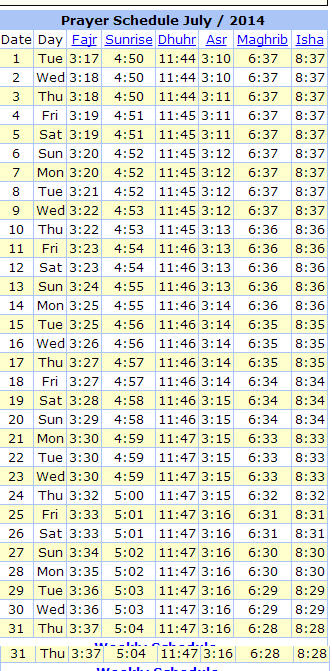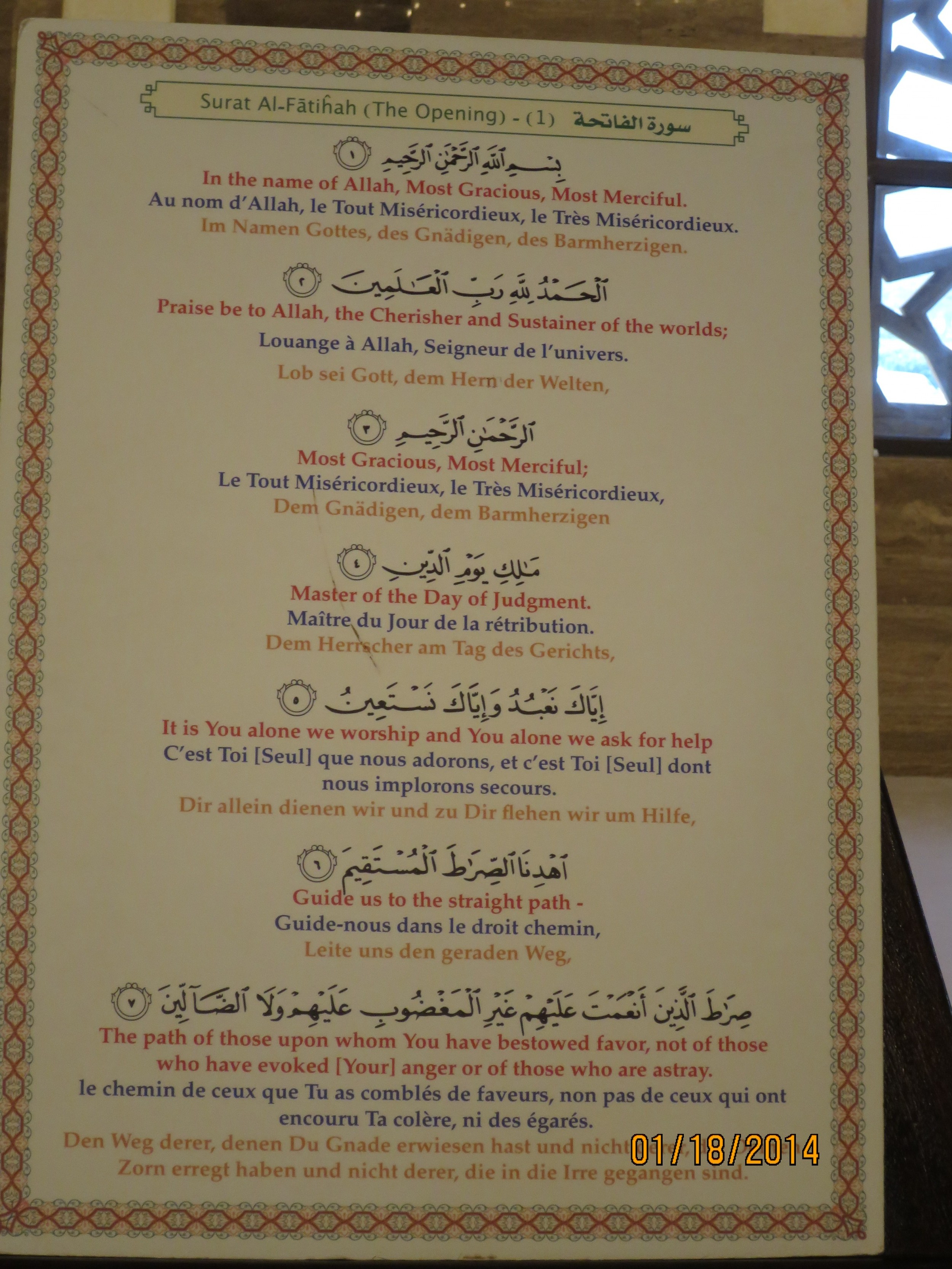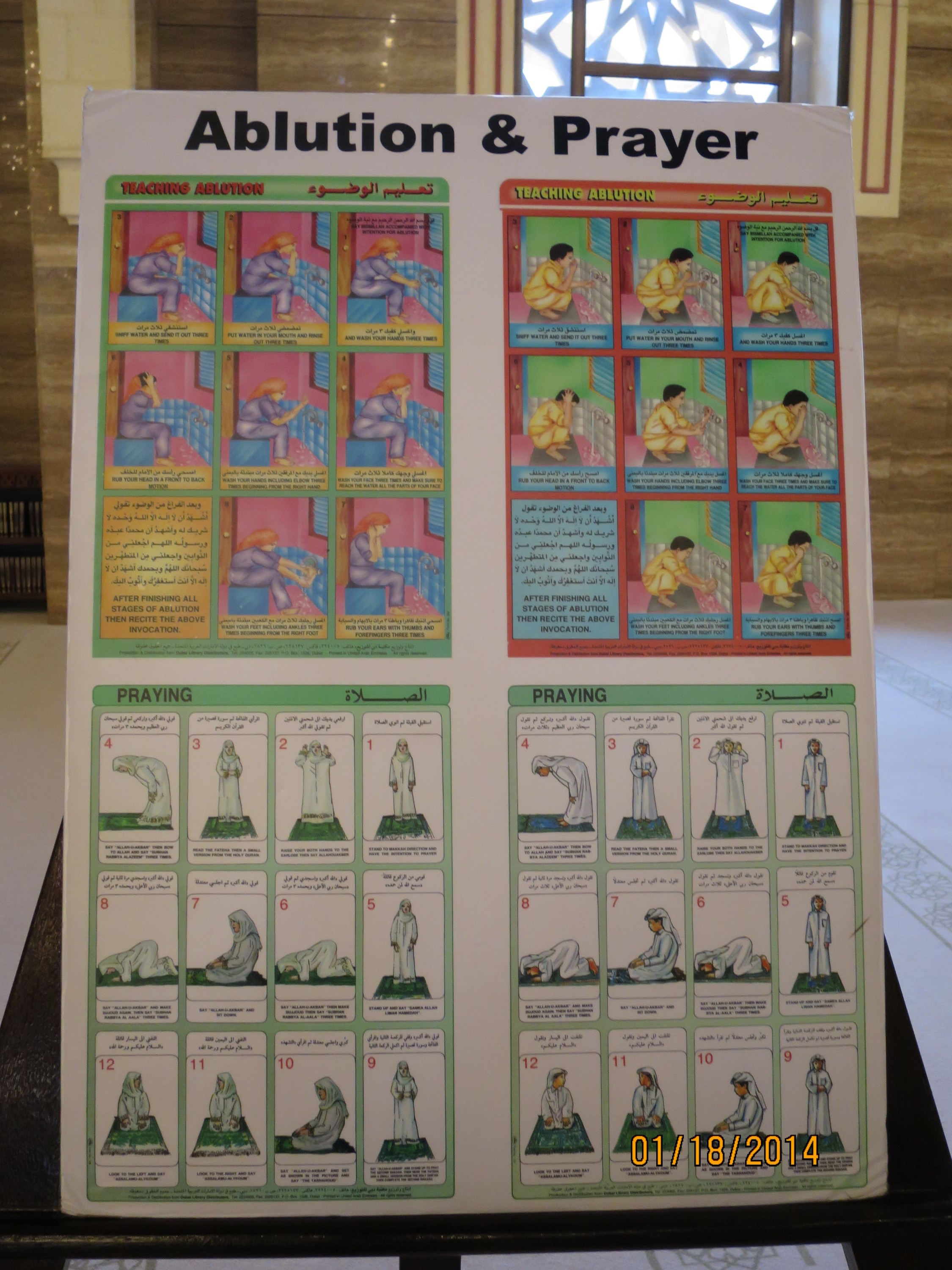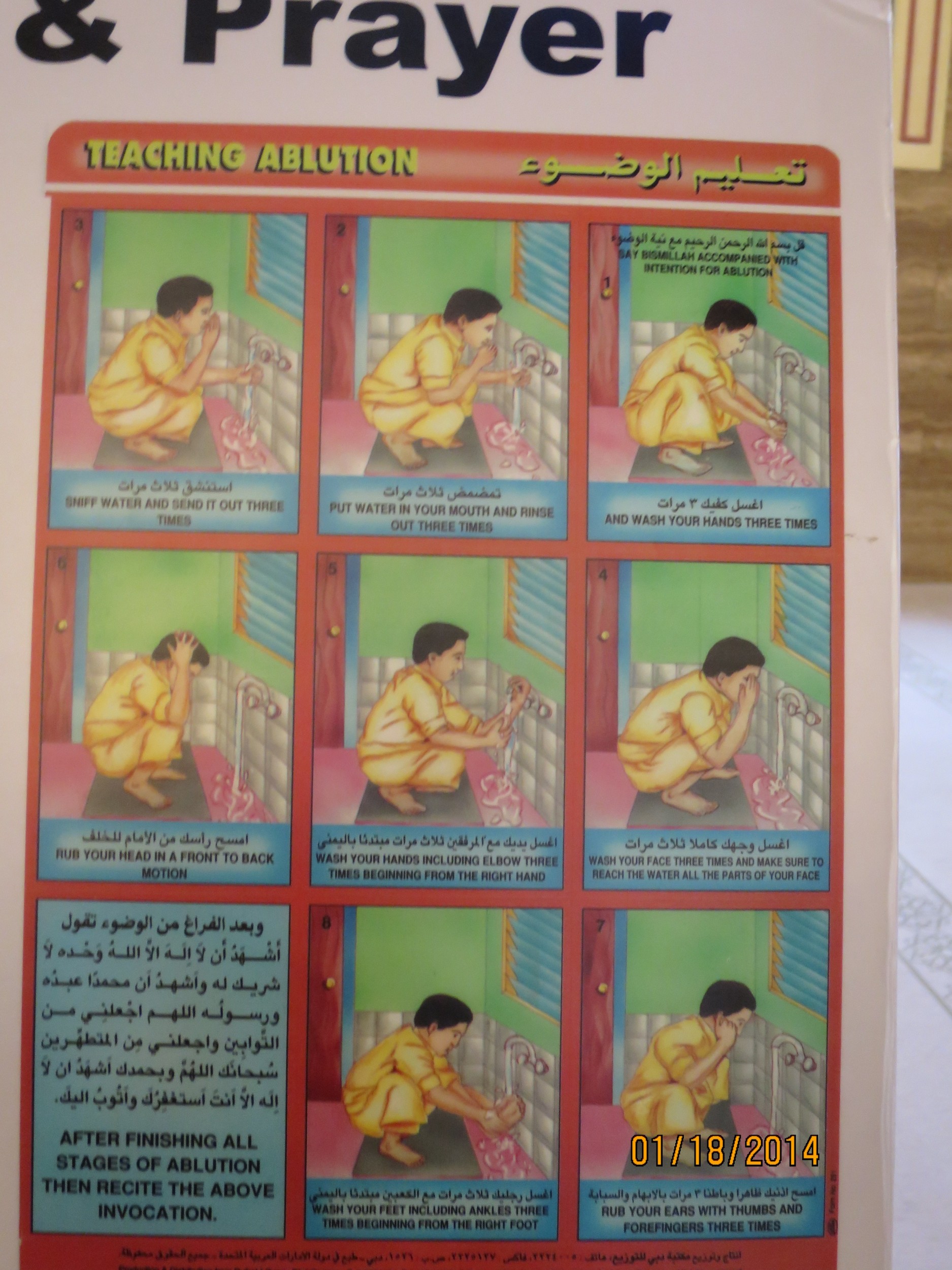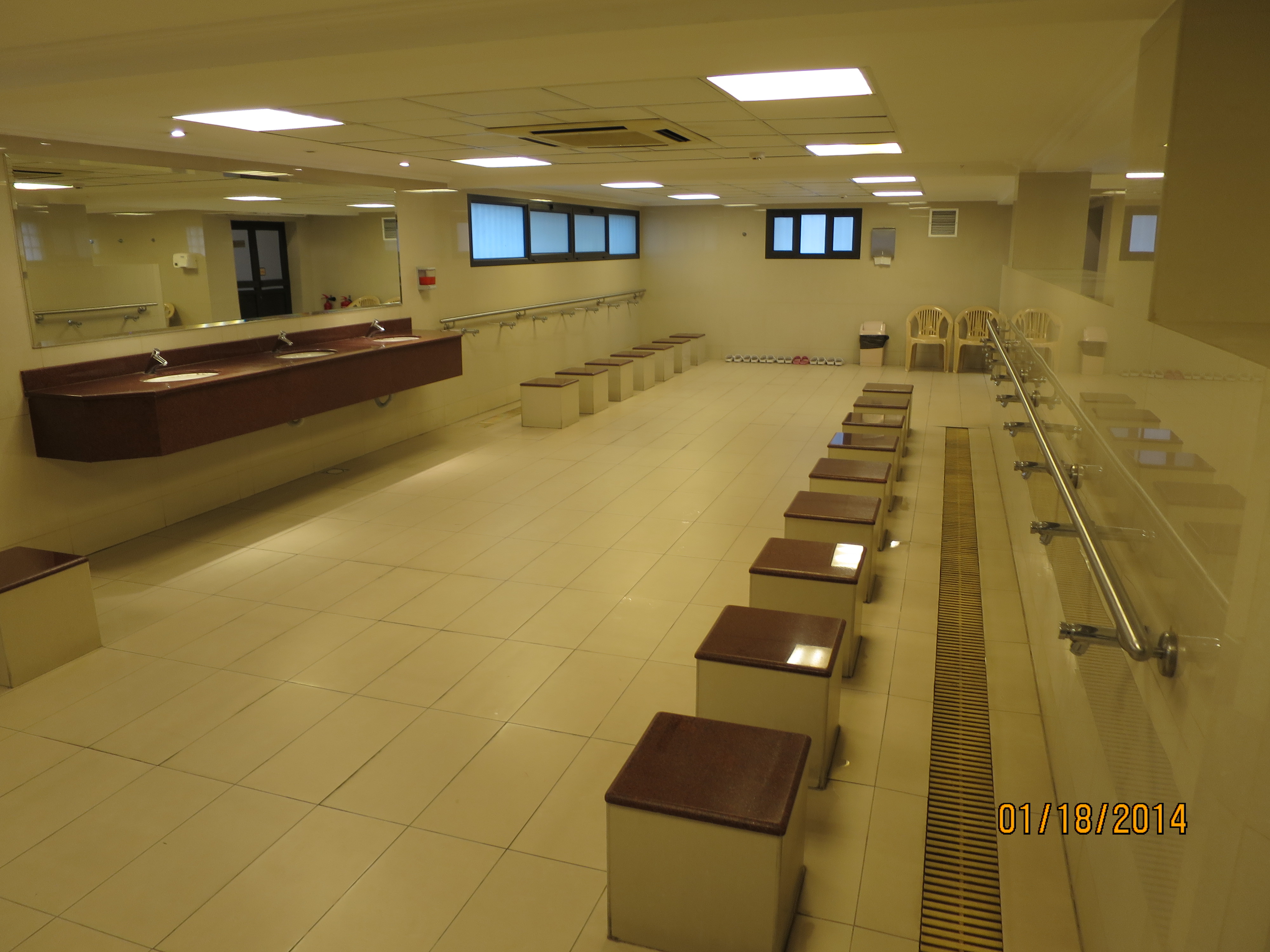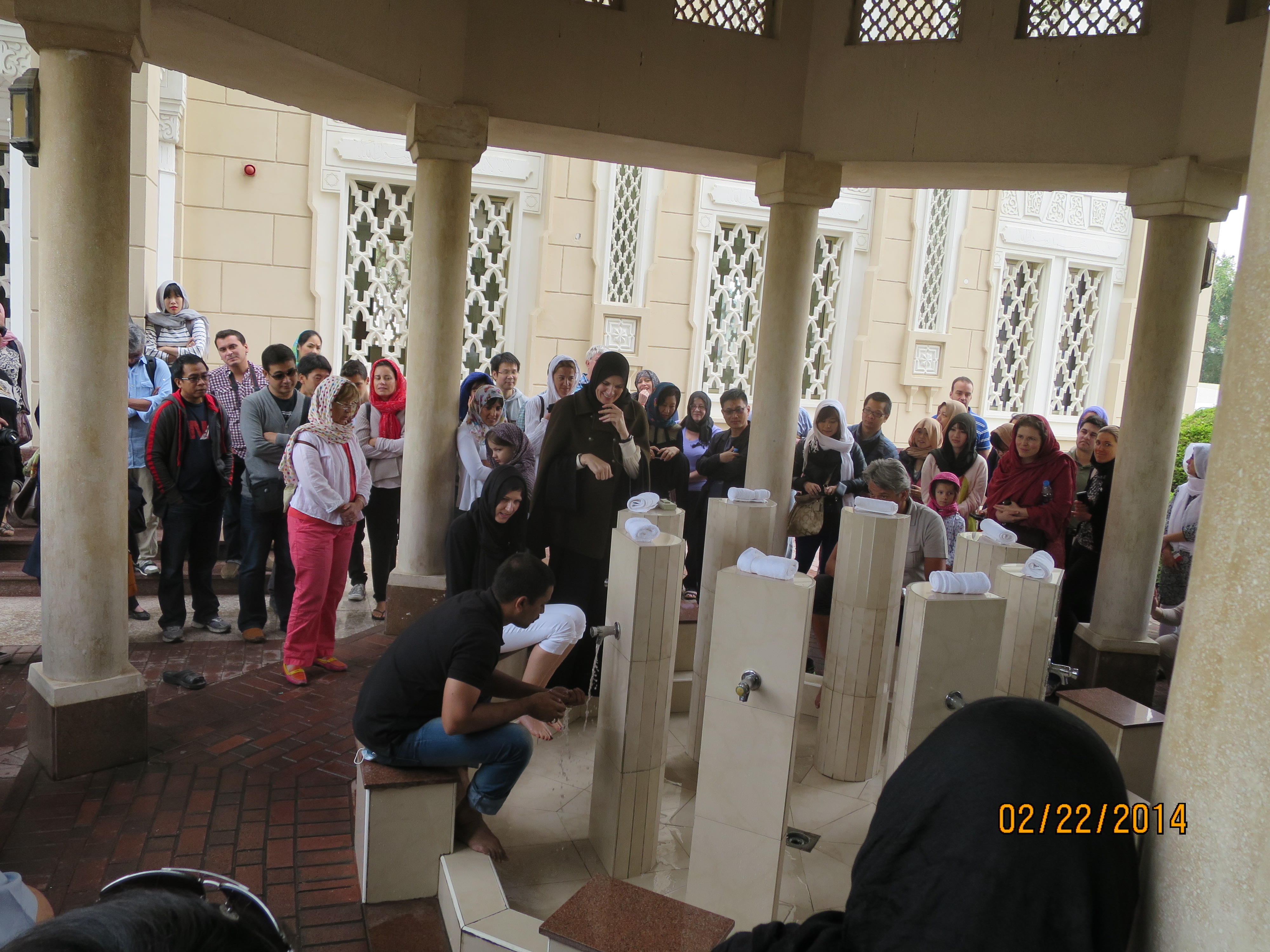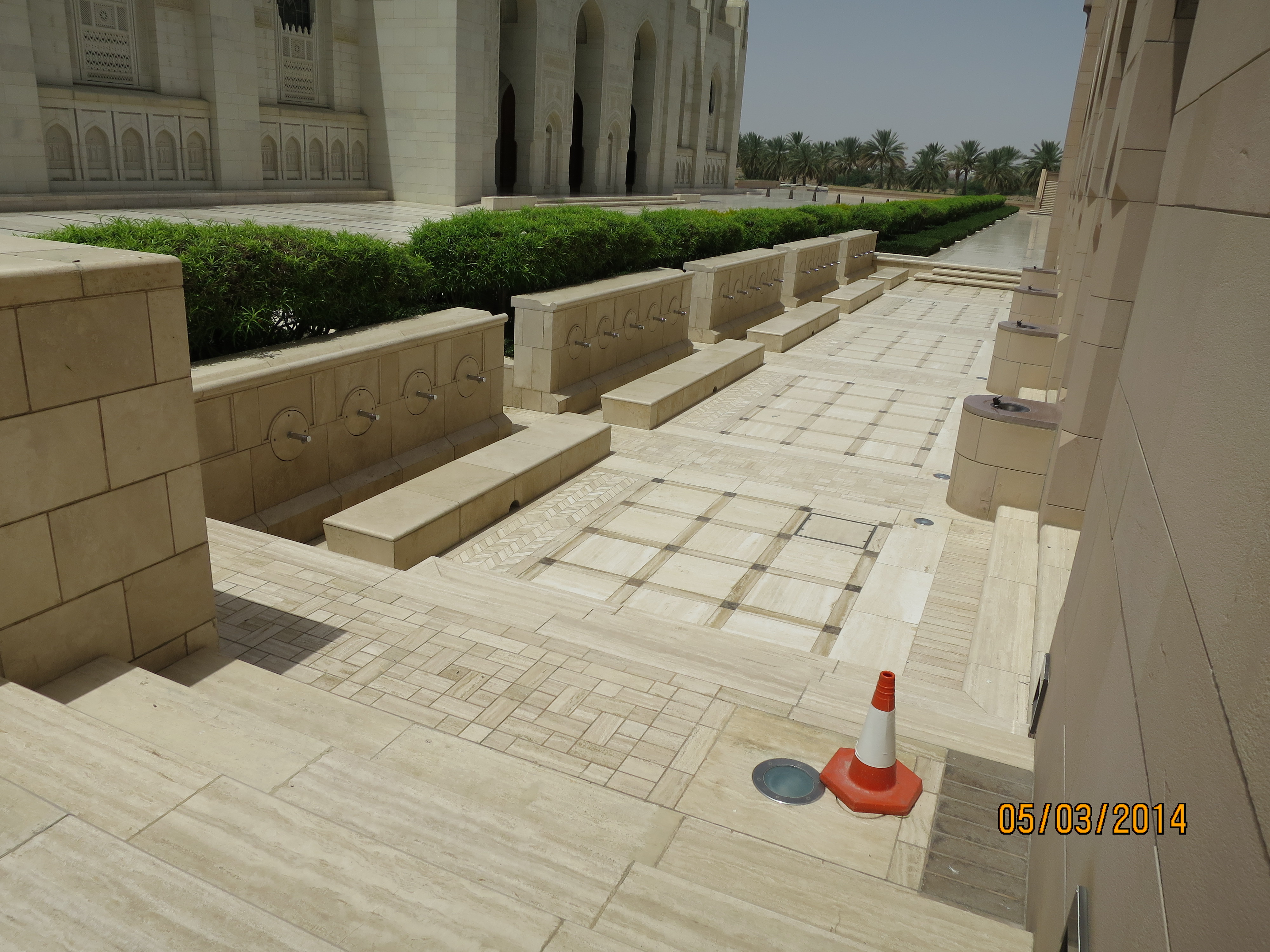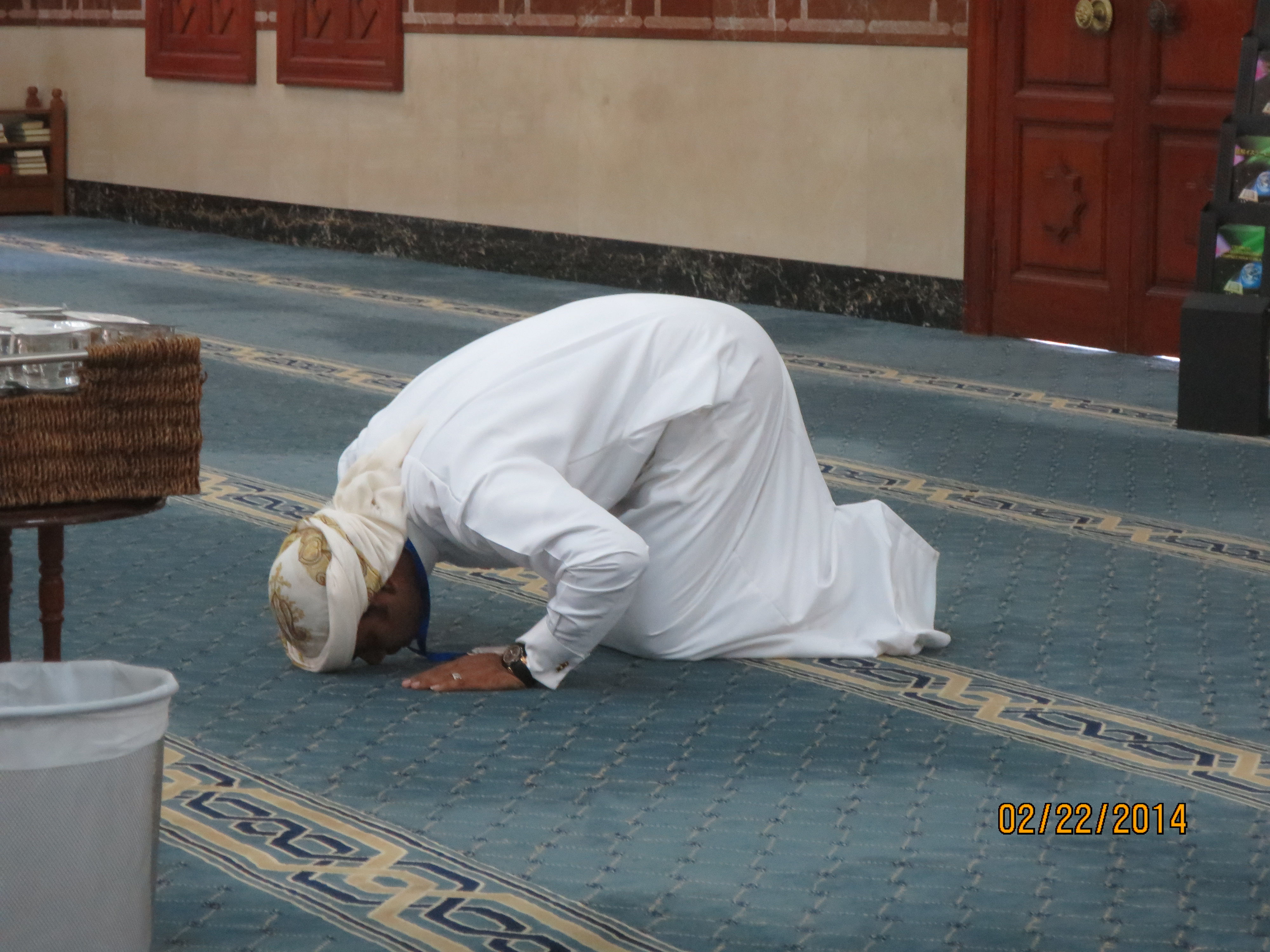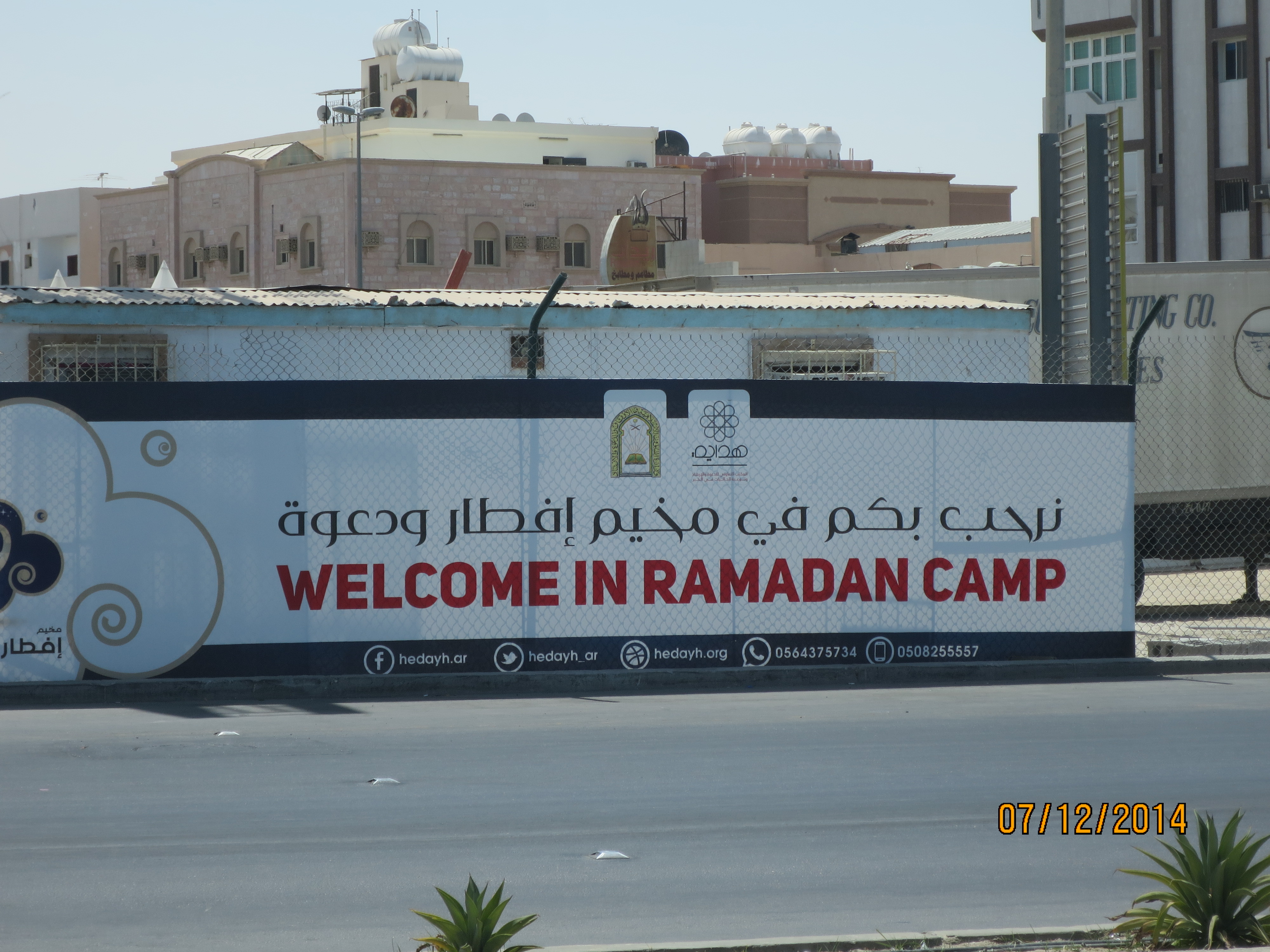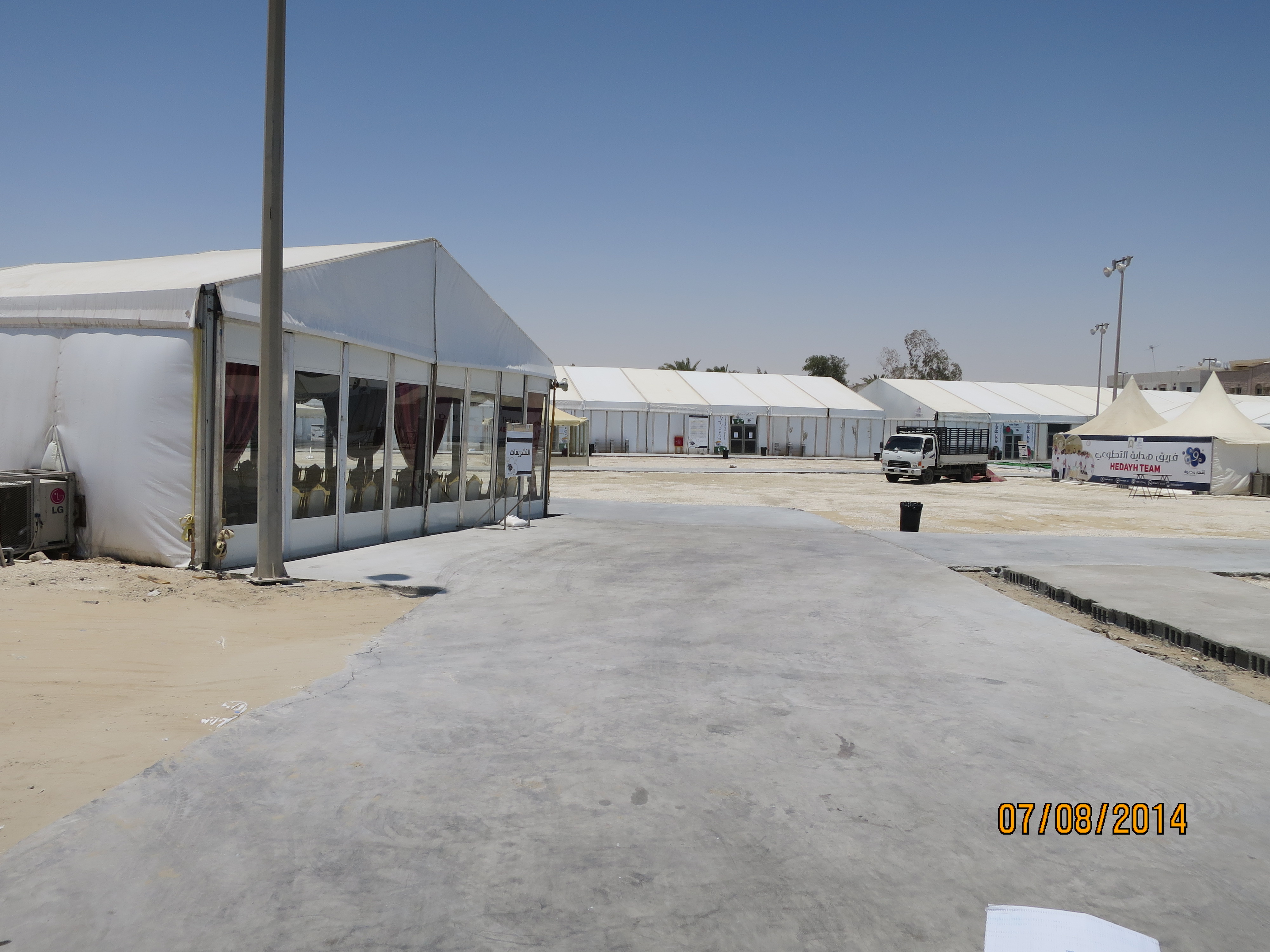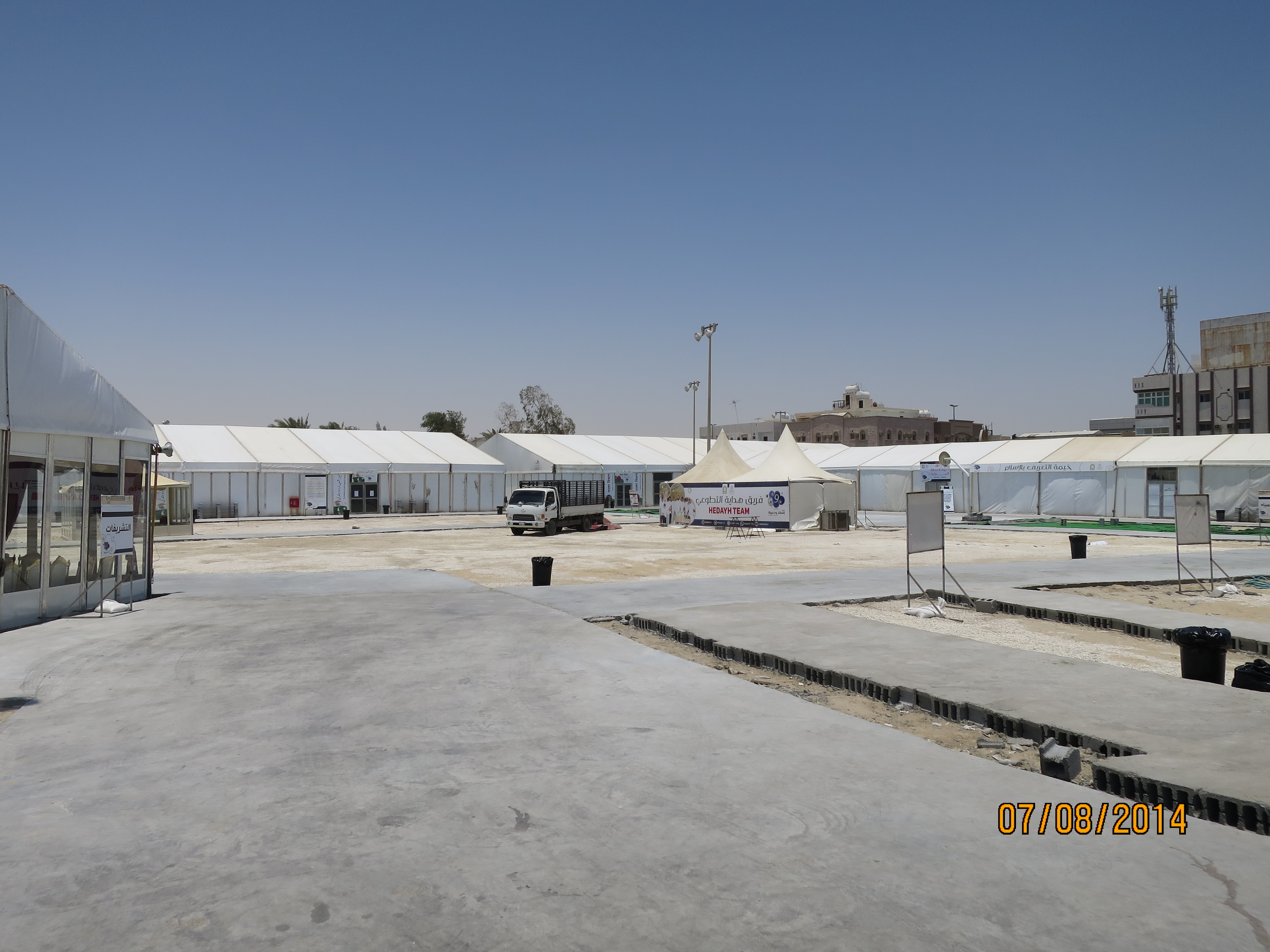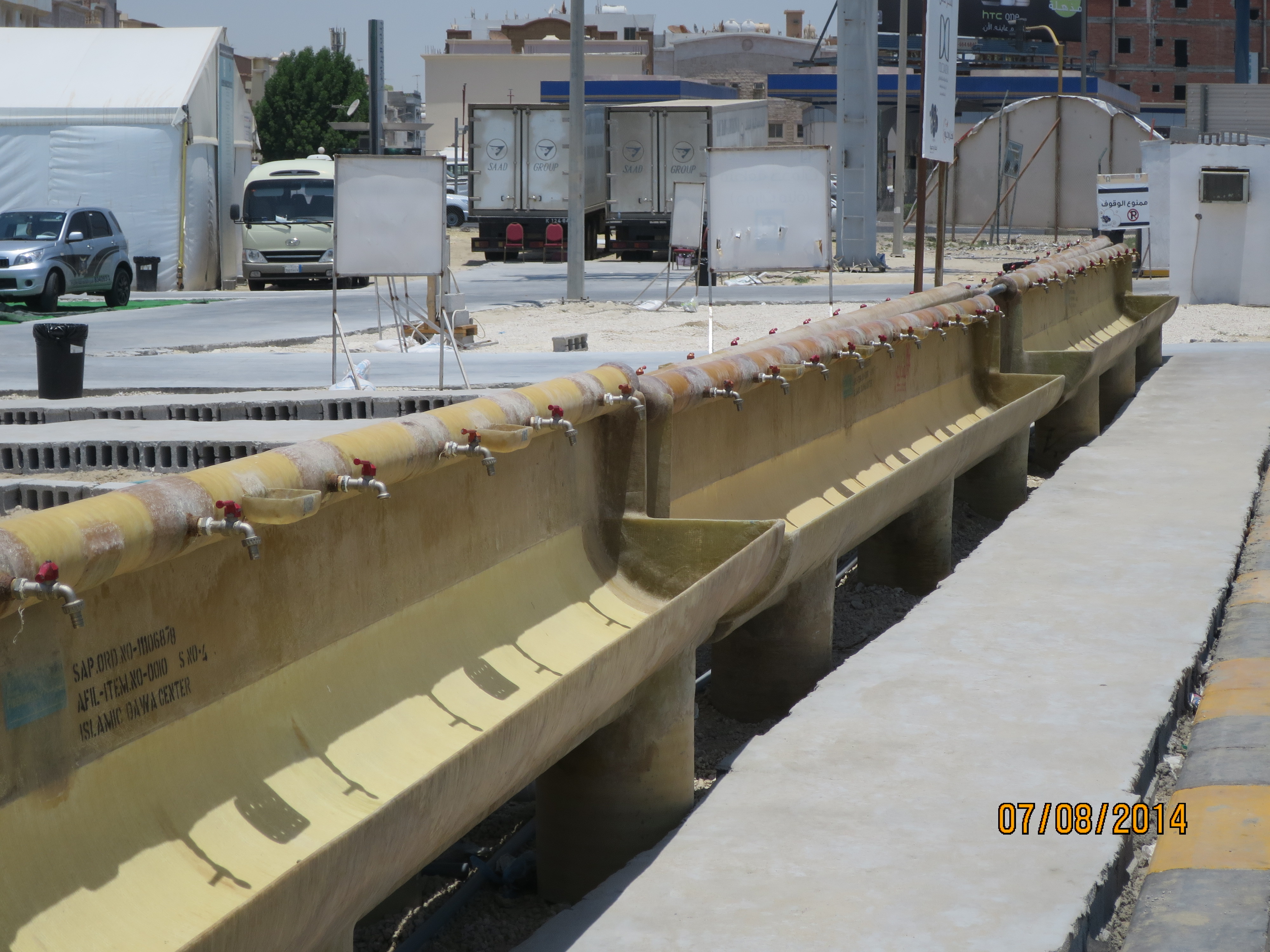The call to prayer, before you read any further click here and listen to the call to prayer while reading the rest of the post. When we first arrived in January, the weather was fine, we were able to open our windows and patio doors for most of the day and evenings.This is what we heard five times a day. Over the next few months your brain eventual tunes it out and now that the weather is hot and the windows and doors closed plus with the A/C humming you hardly ever hear it.
Salat, is the practice of worshiping, praying 5 times a day. Each prayer is made up of two to four repetitions of a module called a rak’a. Each rak’a is made up of physical movements combined with reciting the fatiha which is the first chapter of the Quran. Prayer is a direct link with the worshipper and God, it is standing before God to thank and praise him and to ask for guidance along the right path that pleases God. By praying 5 times a day Muslims stay connected to God throughout their day and consequently their lives. Prayer may be done almost anywhere such as in fields, officers, factories, schools, etc.
Prayer is obligatory for all Muslim except for those who are disabled, prepubescent, very sick, pregnant, frail and elderly or traveling.
To perform a true salat Muslims must be in a state of ritual purity which is achieved by the ritual ablution, washing oneself. Worship is performed in a ritually clean environment. When worshipping the clothes and the places must be clean. Before each prayer Muslims perform a ritual ablution. A wuda is the Islamic procedure for washing parts of the body using water to prepare for prayers. It is the washing of the hands, mouth, nose, arms, face, hair, ears, and feet three times each in that order. Every mosque has an area for washing.
Prayer Times
Muslims are required to pray five times a day, obligatory when you reach the age of puberty. Prayer is based on when the sun rises and sets, these times change roughly 1 minute every two days, and will change 10 minutes from the beginning to the end of the month. The first prayer Fajr is between dawn, the first day light and sunrise, the second prayer, dhuhr is at true noon, the third prayer, asr is in the afternoon, the four prayer, maghrib, is at sunset and the fifth prayer, isha, is at dusk. There are many apps available for smart phones to provide the prayer times at any location in the world. Below is a screen shot of prayer times for July and the link I use to print out the prayer times each month.
The call to prayer – Adhan
Adhan is the call to prayer from the mosque five times a day. Traditionally done from a minaret a muezzin, the caller, would summons the community about 15 minutes prior to the prayer time. The call is actually the reciting of a prayer that sums up the statement of faith. Now loudspeakers have been installed in the minarets for this purpose. Even though we live on the outskirts of Khobar we hear 5 times a day sometimes in stereo because there are several mosques in the area the call to prayer.
Mosque of course is a place of worship for Muslims. Each neighborhood has a local mosque usually smaller in size. These are used mostly for daily prayers. There are also larger mosques that are used on Friday mornings for congregational worship/prayers. Muslims go to the congregational mosques on Fridays just after noon time where a jumu’ah prayer starts followed by an imam who also gives a sermon.The congregational mosques are more elaborate with domes, minarets and larger prayer halls.

